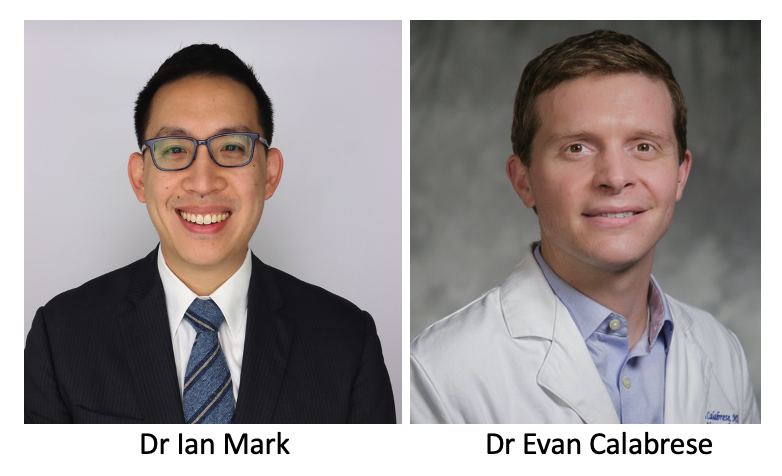ARRS Announces 2024 Scholarships
Images

The American Roentgen Ray Society (ARRS) has granted two 2024 ARRS Scholarships to Ian Mark of Mayo Clinic Minnesota and Evan Calabrese of Duke University Medical Center.
Provided by ARRS’ own The Roentgen Fund, the ARRS Scholarship supports early-career faculty members pursuing radiological research that promises to change how medical imaging is practiced. A two-year grant totaling $180,000, the ARRS Scholarship aims to advance emerging scholars, as well as prepare them for positions of leadership.
Drs Ian Mark and Evan Calabrese will be formally recognized as recipients of the ARRS Scholarship during the opening ceremony of the 124th ARRS Annual Meeting in Boston, MA, on Sunday, May 5, 2024.
Ian Mark, MD, is an assistant professor of Radiology at Mayo Clinic in Rochester, MN. He completed his diagnostic radiology residency at Mayo Clinic, where he was chief resident. He subsequently completed a neuroradiology fellowship at UCSF, where he was chief fellow. Since returning to Mayo Clinic as faculty, Dr Mark joined the spine intervention practice, where he performs various types of myelography for the diagnosis of spontaneous intracranial hypotension. He is passionate about developing innovative diagnostic tools and focuses on the underlying pathophysiology of CSF leaks. Dr Mark has previously participated in the ARRS sponsored Introduction to Academic Radiology Program and Clinician Educator Development Program. His research has received external support by means of the American Society of Neuroradiology Scholar Award, the American Society of Spine Radiology Research Grant, and the American Society of Head and Neck Radiology William N. Hanafee Grant.
Evan Calabrese, MD, PhD, works in the departments of radiology and biomedical engineering at the Duke Center for Artificial Intelligence in Radiology (DAIR) at Duke University Medical Center in Durham, NC. As a physician scientist focused on neuroimaging, his ongoing career goal is to combine clinical excellence in neuroradiology with cutting-edge research. Dr Calabrese’s primary research interest lies in the use of innovative automated image processing techniques, including artificial intelligence, to help extract clinically useful information from multimodal neuroimaging data with a focus on applications in neuro-oncology. As clinical imaging protocols continue to grow with the addition of high-field, high-resolution, and advanced imaging techniques, he believes that there will be an increasing need for computational neuroimaging support tools to ensure that patients and clinicians receive the maximum benefit from neuroimaging studies. His ongoing research focuses on development, validation, and implementation of these neuroimaging support tools for improving care of patients with tumors of the central nervous system.
Related Articles
Citation
. ARRS Announces 2024 Scholarships. Appl Radiol.
February 2, 2024